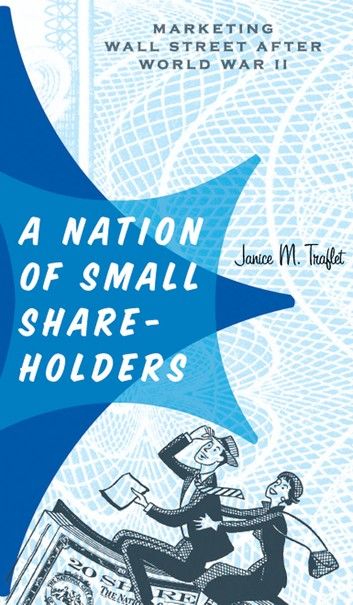| FindBook |
有 1 項符合
A Nation of Small Shareholders的圖書 |
 |
A Nation of Small Shareholders 作者:Janice M. Traflet 出版社:Johns Hopkins University Press 出版日期:2013-03-12 語言:英文 |
| 圖書館借閱 |
| 國家圖書館 | 全國圖書書目資訊網 | 國立公共資訊圖書館 | 電子書服務平台 | MetaCat 跨館整合查詢 |
| 臺北市立圖書館 | 新北市立圖書館 | 基隆市公共圖書館 | 桃園市立圖書館 | 新竹縣公共圖書館 |
| 苗栗縣立圖書館 | 臺中市立圖書館 | 彰化縣公共圖書館 | 南投縣文化局 | 雲林縣公共圖書館 |
| 嘉義縣圖書館 | 臺南市立圖書館 | 高雄市立圖書館 | 屏東縣公共圖書館 | 宜蘭縣公共圖書館 |
| 花蓮縣文化局 | 臺東縣文化處 |
|
|
Immediately after the frightening Great Crash of 1929, many Americans swore they would "never" or "never again" become involved in the stock market. Yet hordes of Americans eventually did come to embrace equity investing, to an extent actually far greater than the level of popular involvement in the market during the Roaring 1920s. A Nation of Small Shareholders explores how marketers at the New York Stock Exchange during the mid twentieth century deliberately cultivated new individual shareholders.
Janice M. Traflet examines the energy with which NYSE leaders tried to expand the country’s retail investor base, particularly as the Cold War emerged and then intensified. From the early 1950s until the 1970s, Exchange executives engaged in an ambitious and sometimes controversial marketing program known as "Own Your Share of America," which aimed to broaden the country’s shareholder base. The architects of the marketing program ardently believed that widespread shareownership would strengthen "democratic capitalism" which, in turn, would serve as an effective barrier to the potential allure of communism here in the United States.
Based on extensive primary source research, A Nation of Small Shareholders illustrates the missionary zeal with which Big Board leaders during the Cold War endeavored to convince factions within the Exchange as well as the outside public of the practical and ideological importance of building a true shareholder nation.
In these troubled economic times, every citizen should welcome studies that shed light on U.S. financial markets. A Nation of Small Shareholders puts the role of individual investors in broader, long-term perspective.
|










